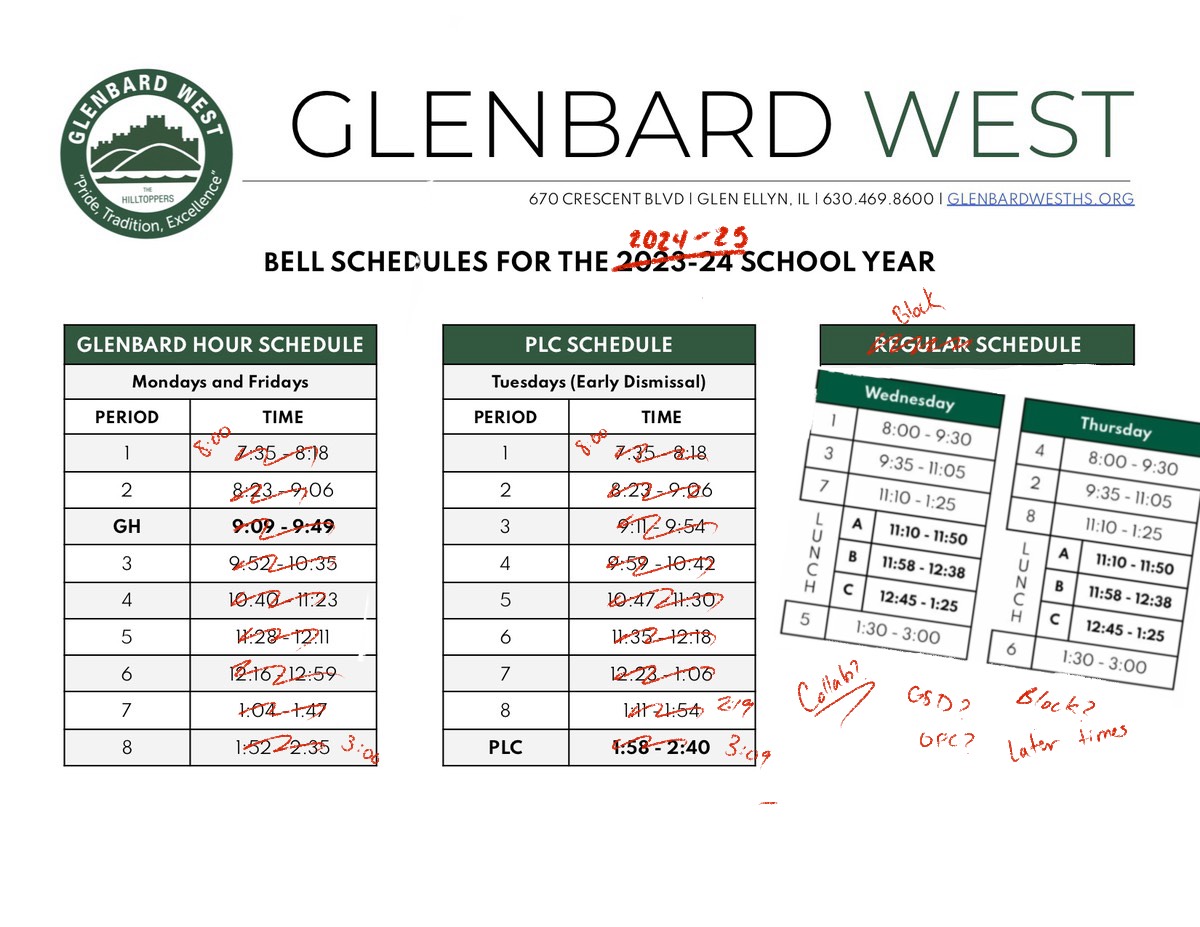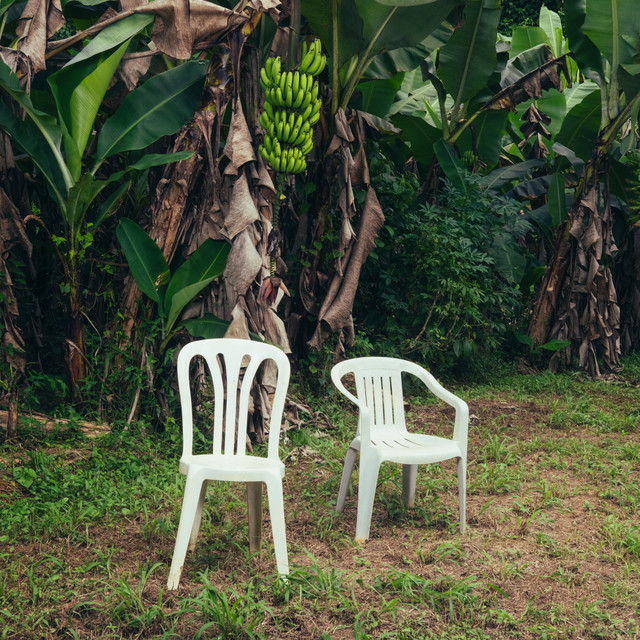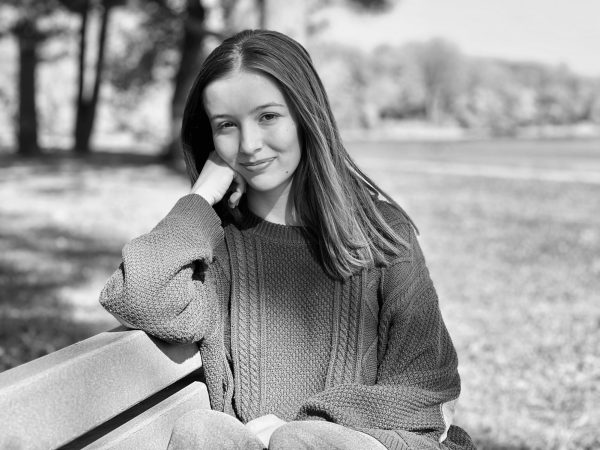In the March 19 primary, District 87 will request $183 million in tax dollars from Glenbard Township residents for facility upgrades. Combined with $129 million from the district’s operating budget, it amounts to $312 million over the next decade.
The district hopes to construct more secure entrances, upgrade classroom and science labs, create common spaces, relocate student support services, add multi-use spaces, improve fine arts facilities, and expand cafeterias, and relieve congestion. These improvements would be implemented at all four Glenbard high schools, each over a half-century old.
District funding estimates would allocate $54 million or around 30 percent of the referendum funds to West, $42 million to East, $47 million to North, and $30 million to South. The Assistant Superintendent for Finance and Operations, Dr. Seth Chapman, attributes the discrepancies to each building’s age and the construction cost differences associated with more historic structures. He assures that “all the dollar amounts that are allocated to the building are there to get to the same level of standard so there’s equity for the opportunities and resources available to our students.”
The district’s concerns at Glenbard West include the outdated cafeteria, an undersized secure main entrance, an uninviting steep back entrance, underutilized outdoor learning spaces, and a lack of collaborative academic spaces, among others listed in a community forum display. Assistant Principal of Operations for Glenbard West, Stacy Scumaci, identified the top facility needs at West as an ‘addition to alleviate overcrowding, safety and security updates, additional common spaces, a secondary performance space, and updating lab space and classrooms to accommodate best practices in education.’
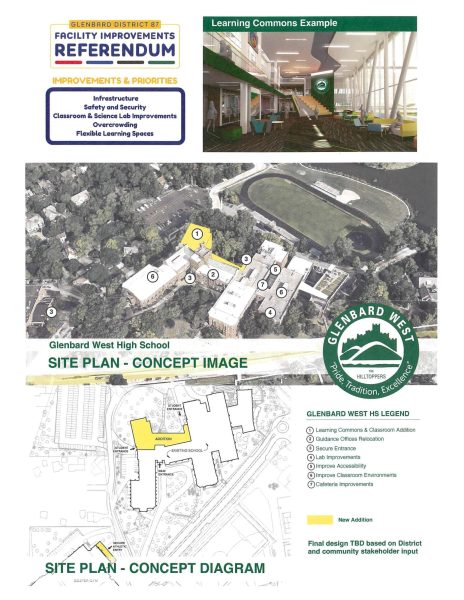
A three-story addition is planned at West to include a learning commons, classrooms, centralized Student Services offices, an elevator, and a new spacious Black Box theater. Security vestibules would also be constructed at Door 1, Biester Gym, and two into the new addition. The final design will be finalized after District and community stakeholder input. Project architect and partner at WOLD Architects and Engineers, Dan Krista, described that the addition would blend the old and new so it “feels like it’s always been there.”
In terms of exterior, at Glenbard South and North, the district plans to “introduce daylight” due to a “severe lack of windows.” At East, there are plans to replace the exterior window system. Additions are also planned at Glenbard North and East, with a minor expansion of South’s entrance.
Critics cite cost concerns and oppose a raise in taxes, but Dr. Chapman, emphasizes the impact of schools on property values. He notes that “one thing that’s true for all of our taxpayers is that quality schools help property values.” He adds that “particularly our residents who don’t have kids in the schools, they become disconnected with what’s going on in our schools and the value of it,” and how good schools build strong communities.
Property tax rates in Illinois are the second highest in the nation and DuPage county pays the second highest median property tax rate in the state. This tax estimate calculator provided by District 87, can help to get a rough idea of how much this referendum will cost your household if approved. This estimates that the owner of a 300,000 dollar home at fair market value would pay an estimated annual tax payment increase of around $178.28 in 2025.
DuPage county’s average home values are the highest in the state at 60 percent above the state average. When compared with peer districts of similar size, District 87 has lower operating expenses per student and tax rates(0.22 percent of assessed property value) than what would be expected based on the municipality’s overall assessed property value.
To justify this multimillion dollar request, the district points to their history of fiscal responsibility. The district’s tax rate has fallen by 36 cents since 2015 and they promise that their tax rate will remain below what it was a decade ago, if the referendum passes. Dr. Chapman asserts that “we don’t waste money, […] we spend money effectively so we can produce the best opportunities, the best resources, the best results for the students and our community.”
The last 10-year plan, between 2013 and 2023, was defined by the mantra ‘warm, safe, and dry.’ Dr. Chapman explains that the focus was infrastructure with some capital improvements. He points out that “all those things are necessary to maintain a building, but virtually none of them are going to help students and the educational environment.”
In 2014, voters approved a referendum of $35 million with no tax increase to payroll the last 10-year plan. In addition to $119 million from the district’s operating budget, $157 million dollars was spent between 2014 and 2024. When adjusted for inflation, the current proposed referendum is a near 300 percent increase from the last proposal.
Dr. Chapman partially explains this price tag by highlighting how “the inflation costs of construction far exceed the inflation of general goods and services. So, every year we’ve waited, we’ve lost ground.”
“At the end of the day the community’s voice is what speaks and that’s what the democratic process is all about. If they don’t support [the referendum], then we need to find out why and we need to adjust. That may mean lower [the number], it may not,” admits Dr. Chapman.
If the referendum does not ultimately pass, even in the general election in November, he says that “we’re really going to be in a position where we’re back to the same kind of ‘warm, safe, dry’ mentality.”
This referendum requires a simple majority to pass. Since 1971, all previous five funding ballot questions from the school district have been approved by Glenbard Township residents. On March 19, voters will determine if this tradition will continue.




